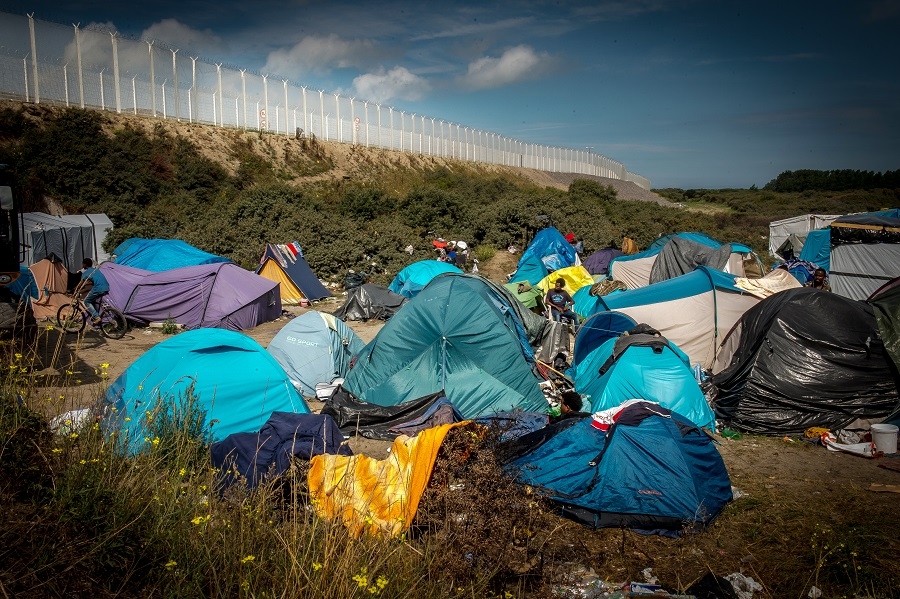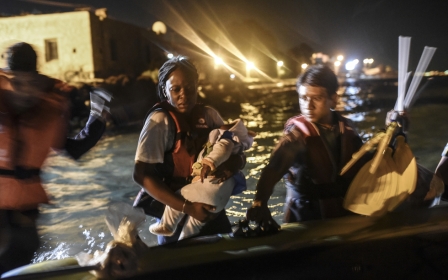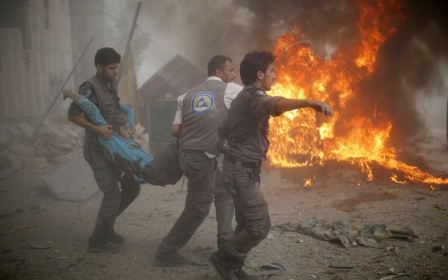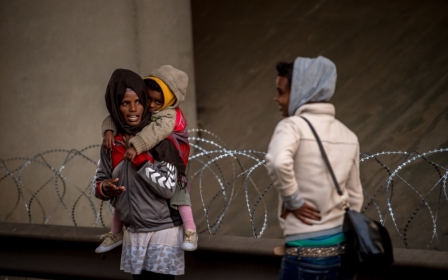The Calais crisis: Could it have been averted?

Heart breaking images of refugees, many travelling with young families, are everywhere. The migrant crisis has swam across from war torn countries like Libya and Syria hoping for refuge in Europe. Hundreds of thousands have made the journey with many more expected to come.
This situation didn’t happen overnight. Civil war and a hunger for new opportunities drove people in their thousands, sometimes with nothing more than the clothes on their backs.
The risks are high, as well as the costs. Illegal human traffickers don’t work cheap. It can cost over $1,500 per person to make the clandestine journey at night from Turkey to Greece. And there is much more to pay for longer journeys. Travelling is hazardous and many people do not survive to reach their journey’s end.
Only a small handful of these migrants arrive at Calais to cross into Britain. But there’s already sufficient numbers to warrant their existence being called a “crisis”.
The Calais migrant crisis isn’t new. Many of us have been talking of a crisis since last September. A year on, the only thing that has changed is the size of the crisis as it continues to grow.
The British and French governments have let themselves get caught in a cycle of despair for the migrants seeking a better life. The pattern is now too familiar. Each side blames the other for inaction in handling the problem. Then they agree to do too little and too late only after the situation boils over. Things calm down momentarily before becoming worse than before. Repeat.
The British government has said the problem is for France to deal with. The migrants are in France seeking to leave for the UK. Many will claim asylum. But because of a EU-wide agreement, the Dublin Agreement, all EU countries, including the UK and France, have accepted that persons seeking asylum should have their claims heard in the first safe EU country they arrive in. The British case is that these people are in France and so it is for that government to handle.
The French see it differently. France is a part of the Schengen Area, along with most of mainland Europe. This means that people trafficked illegally will have set foot in different EU member states prior to coming to France, but because the Schengen Area is a free-movement zone there are too few border checks to stop migrants from entering other countries and claiming asylum there.
So the French resist the idea that they should have to go through the costly process of clearing the camps, with the potential for violence that may be stoked, for people who should have claimed asylum elsewhere. Moreover, the migrants all want to go to the UK, so why not let the UK decide who or who not to admit?
The Euro Tunnel between France and the UK was created with an agreement that each country would have travellers clear the border from the other side. This means that anyone travelling from the UK to France would pass through the French border’s security on the British side of the tunnel, and vice versa - that is a decision the French may regret, given the growing “Jungle” refugee area in Calais is just outside the tunnel entrance.
Not only are the numbers of refugees growing, but also the number of attempts to breach security in search of a better life. At least 1,400 people have tried to break through security to grab hold of a passing lorry or train to the UK each night on many days during the height of the recent crisis.
And what response did they get? The British government agreed to raise the fence a bit higher and send a few sniffer dogs, showing the poverty of their immigration policies.
Foreign Secretary Philip Hammond argued one day that the government had “a grip” on the situation, but only 24 hours later he claimed EU migrants were “marauding” Europe and even threatening the European way of life. These are signs of a government very much not under control.
Despite the crisis continuing since last September, Home Secretary Theresa May became only the first UK minister to visit Calais nearly a year later. Her joint statement with her French counterpart is a welcome step in the right direction. There will be a new security force of personnel from each side to secure the French-side of the tunnel. There will be more security around the zone and in the tunnel itself.
The two governments will work with humanitarian organisations to bring relief and improved conditions to those in the Jungle camp, and the UK has promised funding support to help fast-track asylum claims for migrants in France by the French.
Both sides stressed their close working relationship. But the more they kept mentioning it, the more it exposed the wide gulf that has been between them, even bigger than the English Channel.
It is striking that it has taken so long to decide that there should be a coordinated security force on the ground, that charitable humanitarian organisations working with migrants should receive more support and much more should be done to hear asylum claims as soon as possible if only to provide much needed support as soon as possible. Much of this is obvious to anyone following the situation. Perhaps each side should have followed it more closely much earlier.
The joint statement also makes clear the need for wider engagement with the EU. This is essential. If every refugee in Calais could be sent to the place of their choice, more would soon be more coming to replace them.
The crisis there can only be addressed in the long term by focusing on Europe’s border and working more closely with those nations whose nationals risk all to reach EU shores.
EU member states send different signals to migrants, both welcoming and repelling them at the same time. The EU must work more closely together to develop a coordinated strategy that all can buy into. The Calais crisis is, after all, only one of many for the EU.
Perhaps the Calais crisis could not be averted altogether, but it could have been handled more effectively and humanely if the new procedures were in place months ago.
It has been noticeable how poorly migrants have been framed in this debate. Yes, we see many an image of people in desperate circumstances. But they are also the ones able to get away. These migrants are often educated and skilled. Electricians, accountants, engineers, doctors. Their leaving their native country represents a further loss of talent and potential, but also an opportunity for Europe.
But this is to confuse different issues. Many of these migrants may provide a real boost to flagging economies, but the fact that they are economic migrants will curry little favour and see them sent back.
Before we can hope to hear a political leader make a case for the economic benefits of migration, let us first hear someone - anyone - make the case for accepting asylum seekers at all. Before we tackle the crisis, let us understand why it’s worth solving. This is a lesson about humanity we could all do with hearing at the present time.
- Thom Brooks is Professor of Law and Government at Durham Law School, an Associate in Philosophy and columnist for the Newcastle-based The Journal (currently the regional newspaper of the year), with guest columns for Labour List, New Statesman, Sunday Sun and others. Brooks is the founding editor of the Journal of Moral Philosophy. He tweets at @thom_brooks.
The views expressed in this article belong to the author and do not necessarily reflect the editorial policy of Middle East Eye.
Photo: Migrants wait in a migrant camp called "New Jungle" next to the fence of the ferry port in Calais, northern France, on 14 August, 2015 (AFP)
New MEE newsletter: Jerusalem Dispatch
Sign up to get the latest insights and analysis on Israel-Palestine, alongside Turkey Unpacked and other MEE newsletters
Middle East Eye delivers independent and unrivalled coverage and analysis of the Middle East, North Africa and beyond. To learn more about republishing this content and the associated fees, please fill out this form. More about MEE can be found here.





